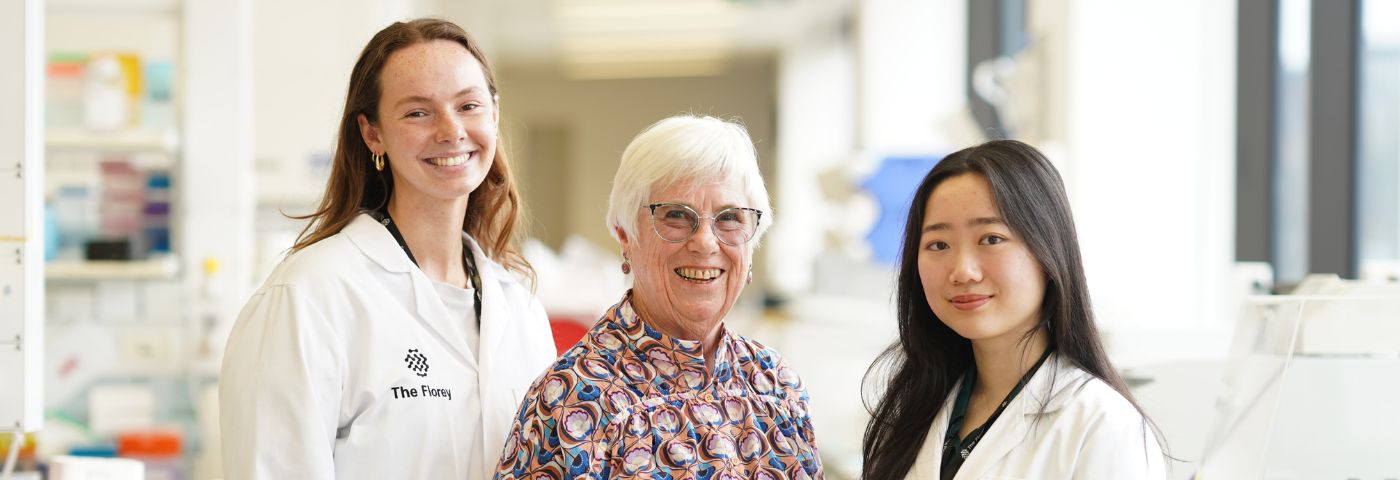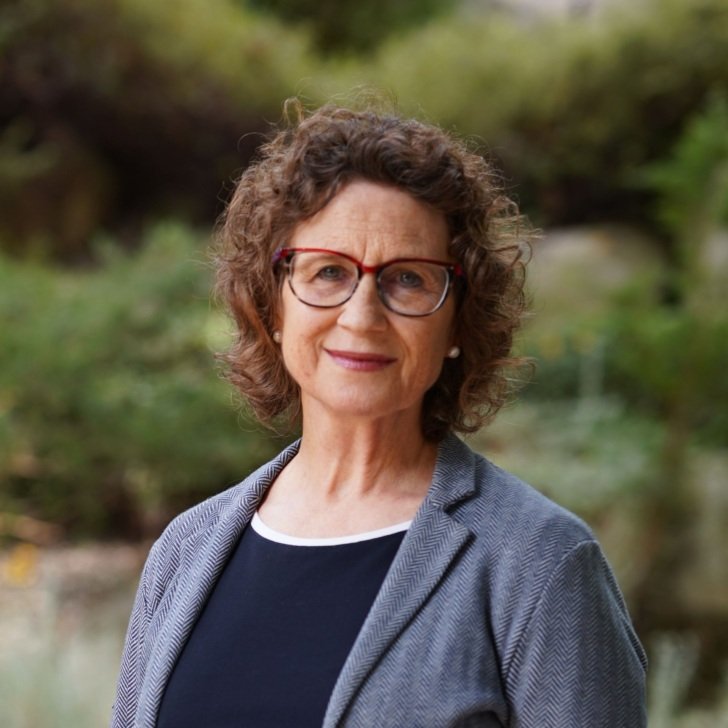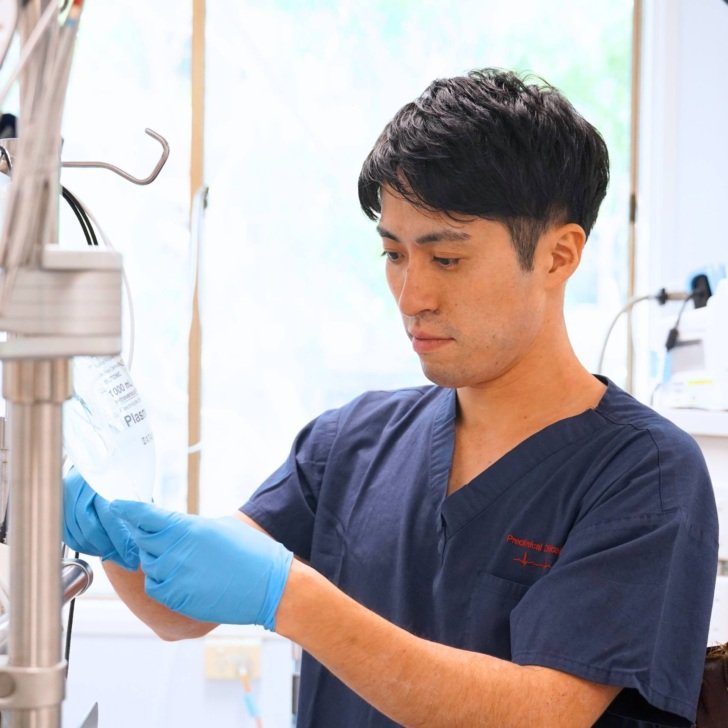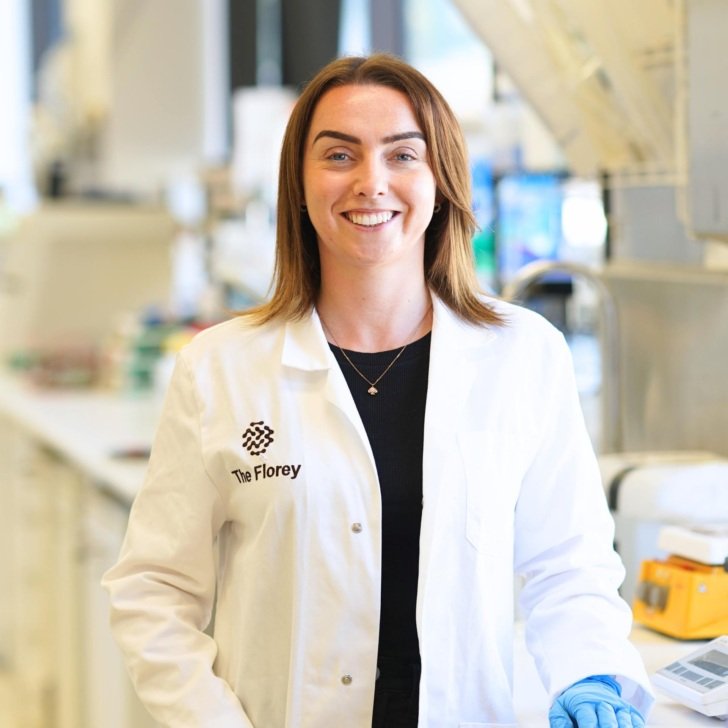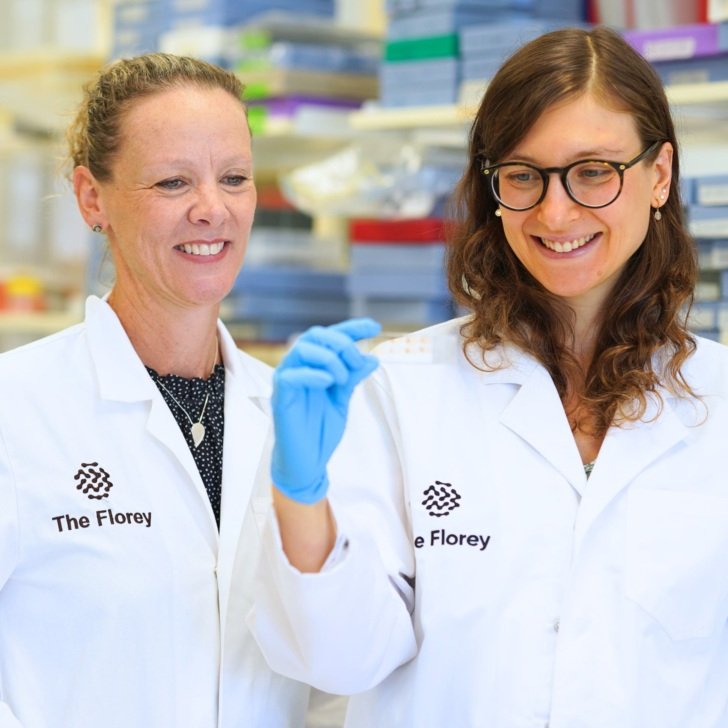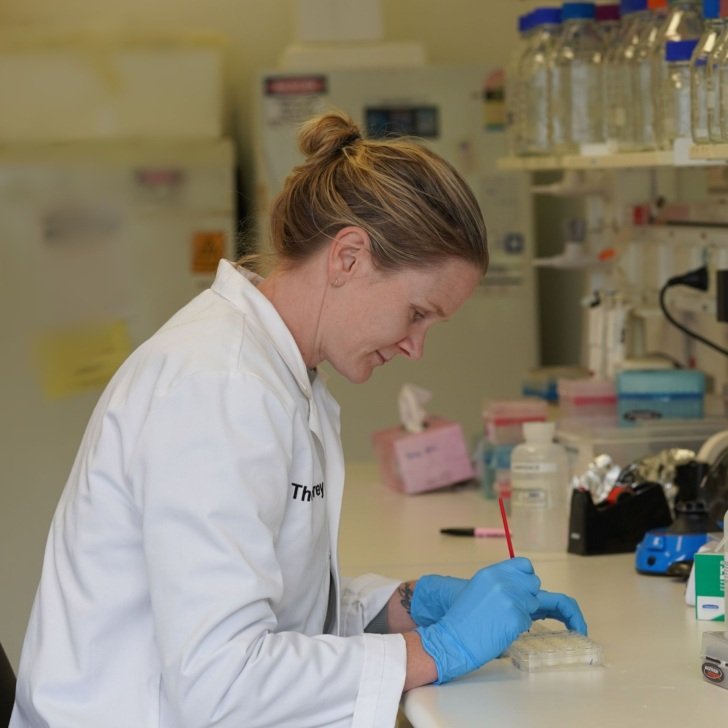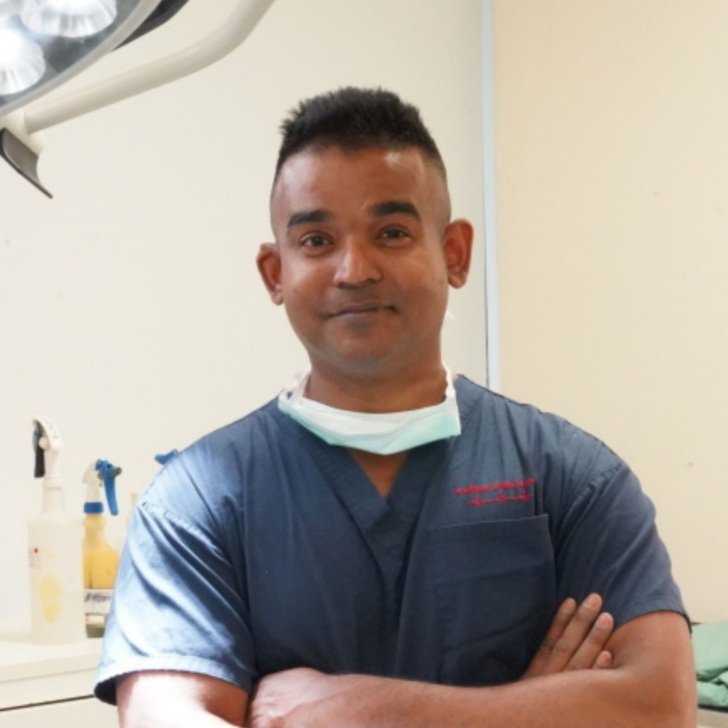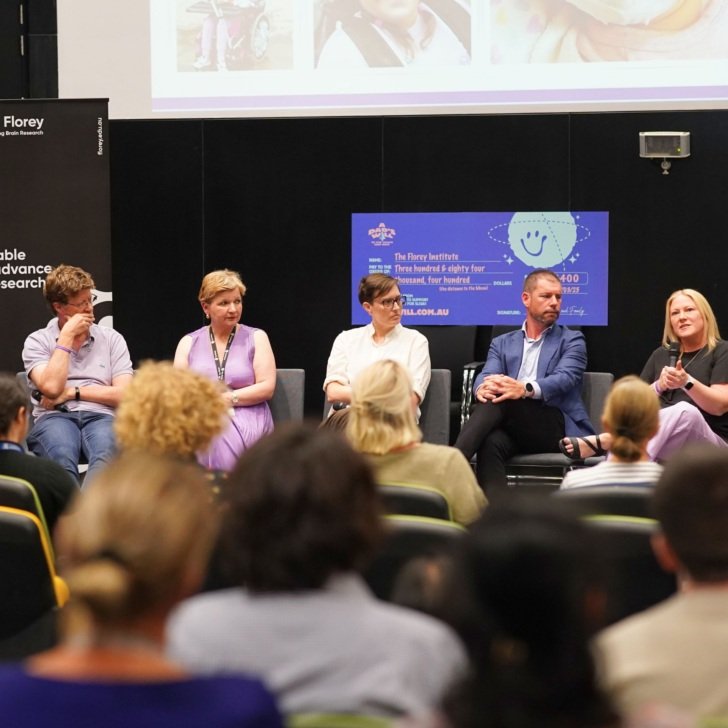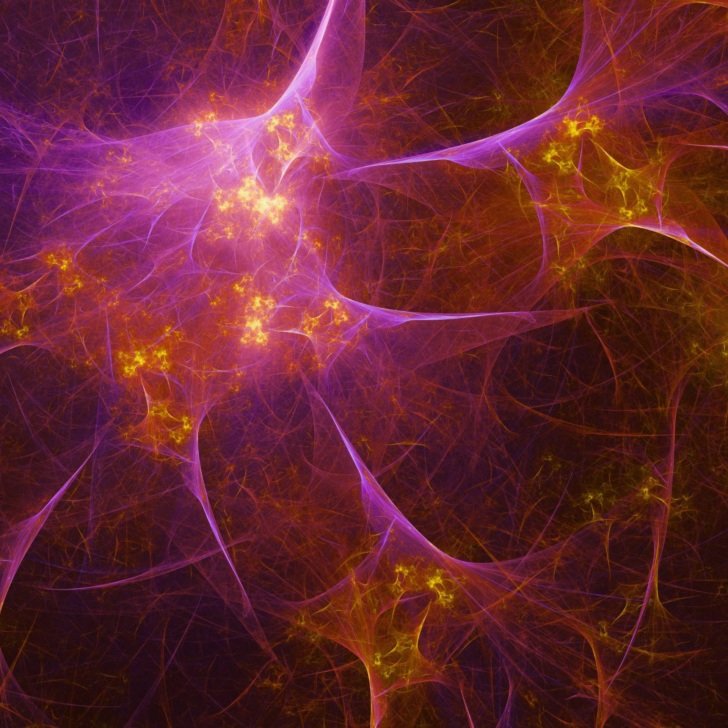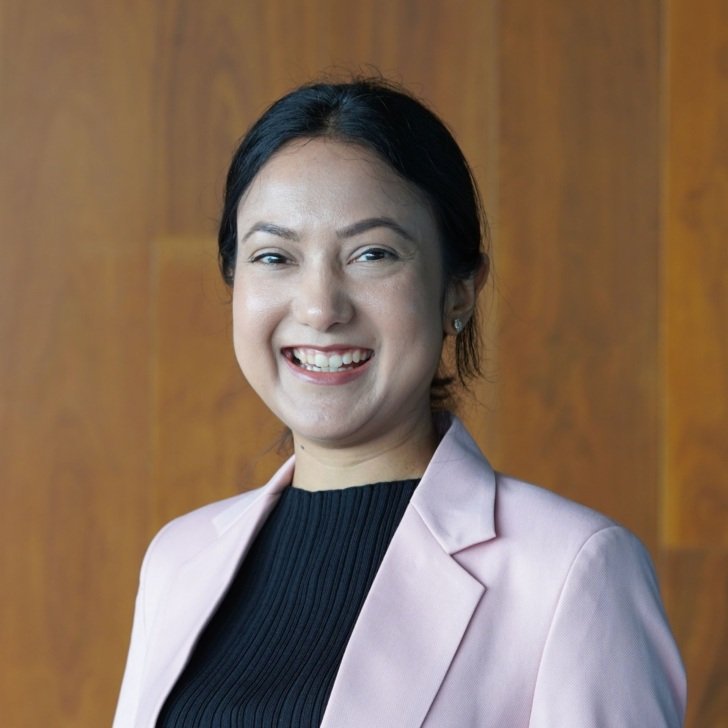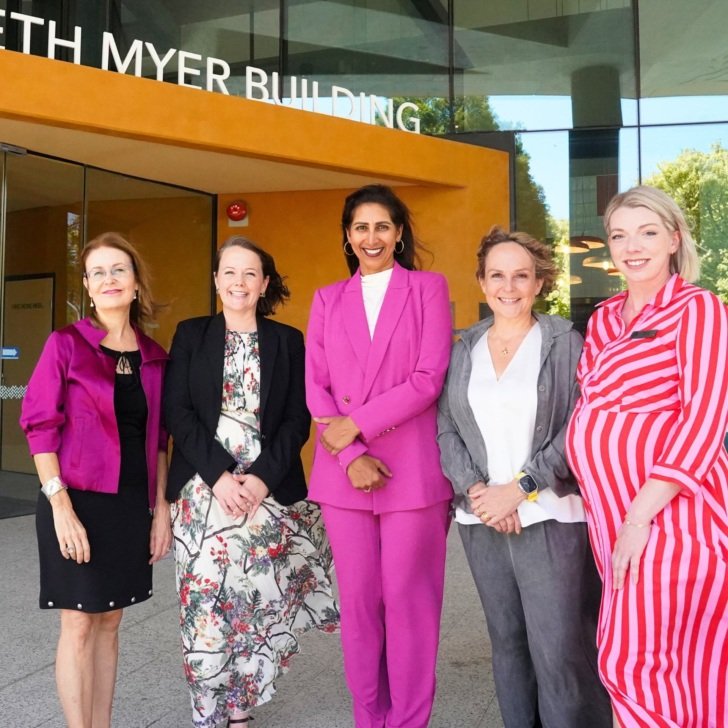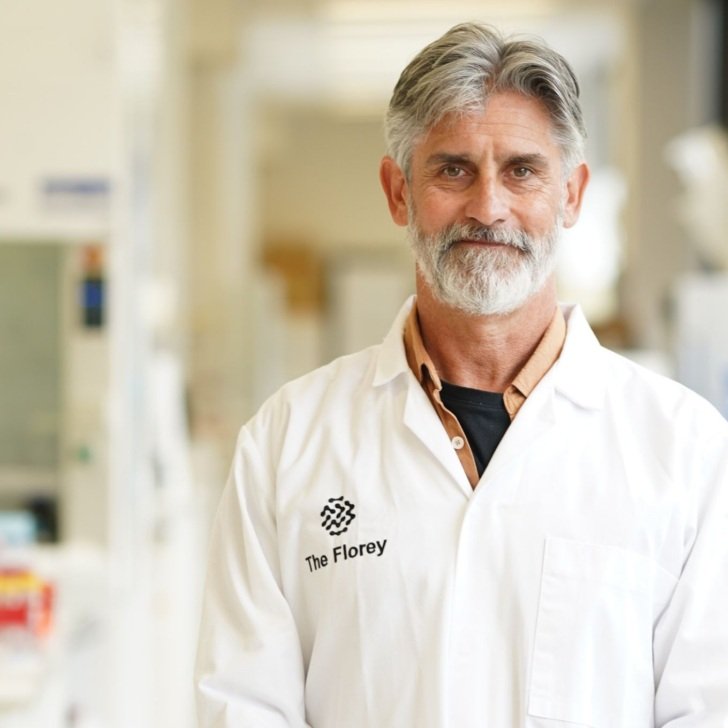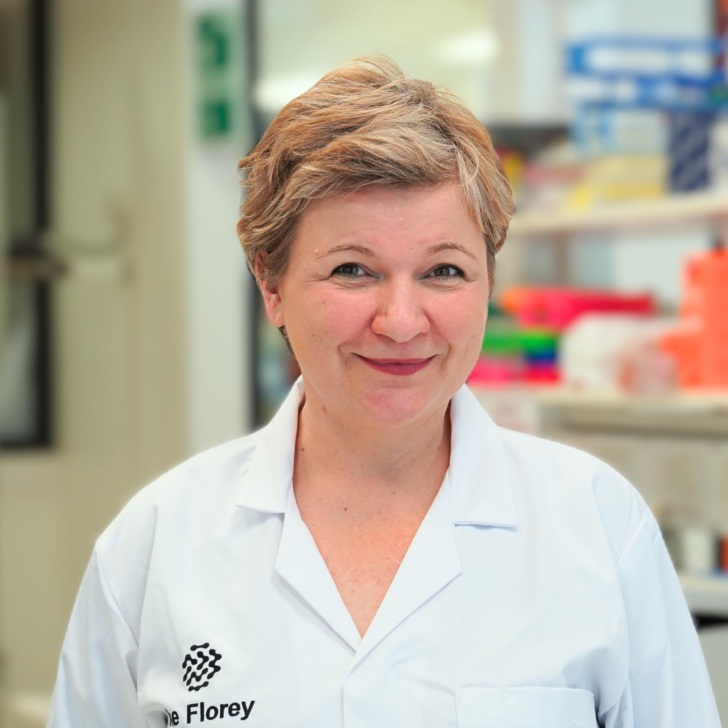Reimagining the future
Kate Brown’s career in medical research and teaching has given her a strong appreciation of the vital brain research undertaken by Florey researchers.
Beginning in 1961 at a large diagnostic laboratory at Waikato Hospital in Hamilton, New Zealand, she moved to Melbourne with her husband, first working at Prince Henry’s Hospital and then the University of Melbourne.
Her employment by the university coincided with the medical faculty expanding to provide its students with greater access to hospital facilities, ensuring future doctors and medical scientists could pursue their research endeavours.
When Kate joined the Department of Surgery at the Austin, she was required to establish the laboratory and build a team of technicians. There was a wide range of research programs, each lead by a surgeon and supported by the technical staff, including recovery from severe blood loss, bone grafts, recovery from liver trauma and cancers.
The technicians in the Department of Surgery worked as a team with the surgical staff, and alongside staff in other departments (Medicine, Pathology and Microbiology).
“When I was involved with the surgical research the automation of test procedures was emerging but the majority of the techniques we performed were manual. There was a lot of repetition and creative problem-solving. The whole team celebrated when we achieved a result,” she says. “I found it exciting and rewarding.”
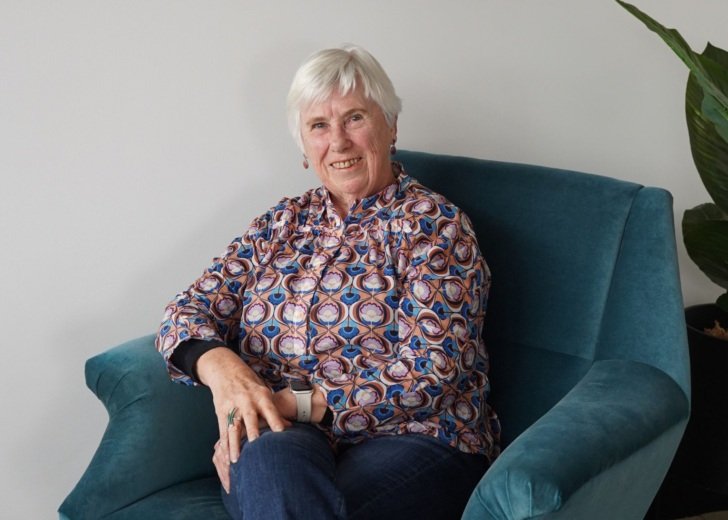
After giving birth to her son, Kate returned to work in 1972 as a part-time demonstrator at the Royal Melbourne Institute of Technology (RMIT), which led to a full-time position in training medical laboratory technicians for the research institutes in the Parkville sector and university laboratories.
Some of these technicians were from what was then the Howard Florey Institute, which is how Kate became aware of The Florey.
Established in 1960, The Florey is now recognised as the largest brain research institute in the Southern Hemisphere, and investigates the causes of and treatments for 20+ neurological conditions.
Kate says, “In a recent article I read the brain was referred to as the last frontier. That resonated with me as I have noted the advances in treating infectious diseases and cancers but there remains much to learn about the workings of and treatment of diseases of the brain”.
The Florey is doing research in areas I’m specifically interested in. I strongly believe these areas need to be supported and advanced such as dementia research.
There are currently over 400,000 people living with dementia, with this number set to increase as our population ages. Sadly, dementia is also the second leading cause of death in Australia.
Kate believes that the early diagnosis of dementia, in order to improve outcomes, will not only provide benefit to individuals and their families but to our economy as well.
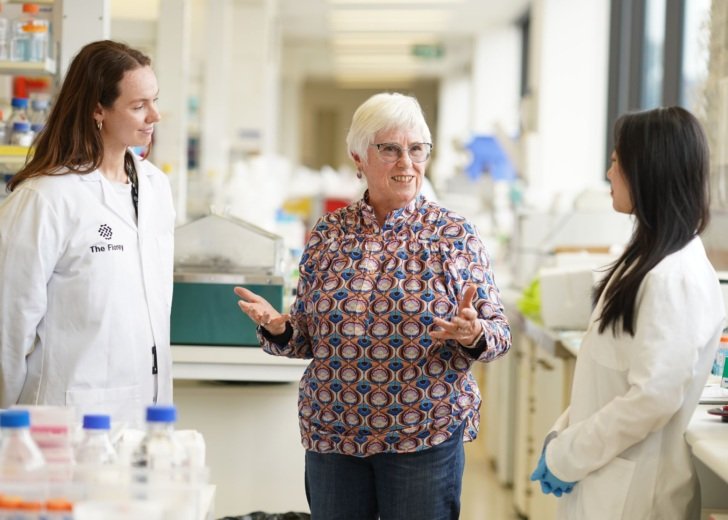
Kate recently joined Florey researchers on a tour of their laboratories to learn more about the work being done into dementia and discuss the changes in medical research over the decades.
“Technological advances have been, and will be, of great assistance to current and future medical researchers. The laboratory I recently visited was greatly different to the one I worked in, in the 60s. The staff I met were as dedicated and enthusiastic as we were, but I am concerned at one major change, researchers now have to invest a much larger proportion of their time seeking funding for their research.”
Kate knows people who suffer from dementia or who are caring for a loved one with dementia and recognises the impact of this disease on the person, family and community. This is one of the reasons she has decided to include a gift to The Florey in her Will.
A Will is a decision that can take time and thought. Kate believes it’s important to prepare a Will to ensure your wishes are carried out as you would like them. She says having a passion and the opportunity now to say how your money is going to be used offers reassurance.
I thought about the things I feel most strongly about – education, medical research and environmental sustainability – and then how I could make a difference in each of those areas.
Kate says, “I have confidence that my gift is highly likely to make a difference for the next generation”.
